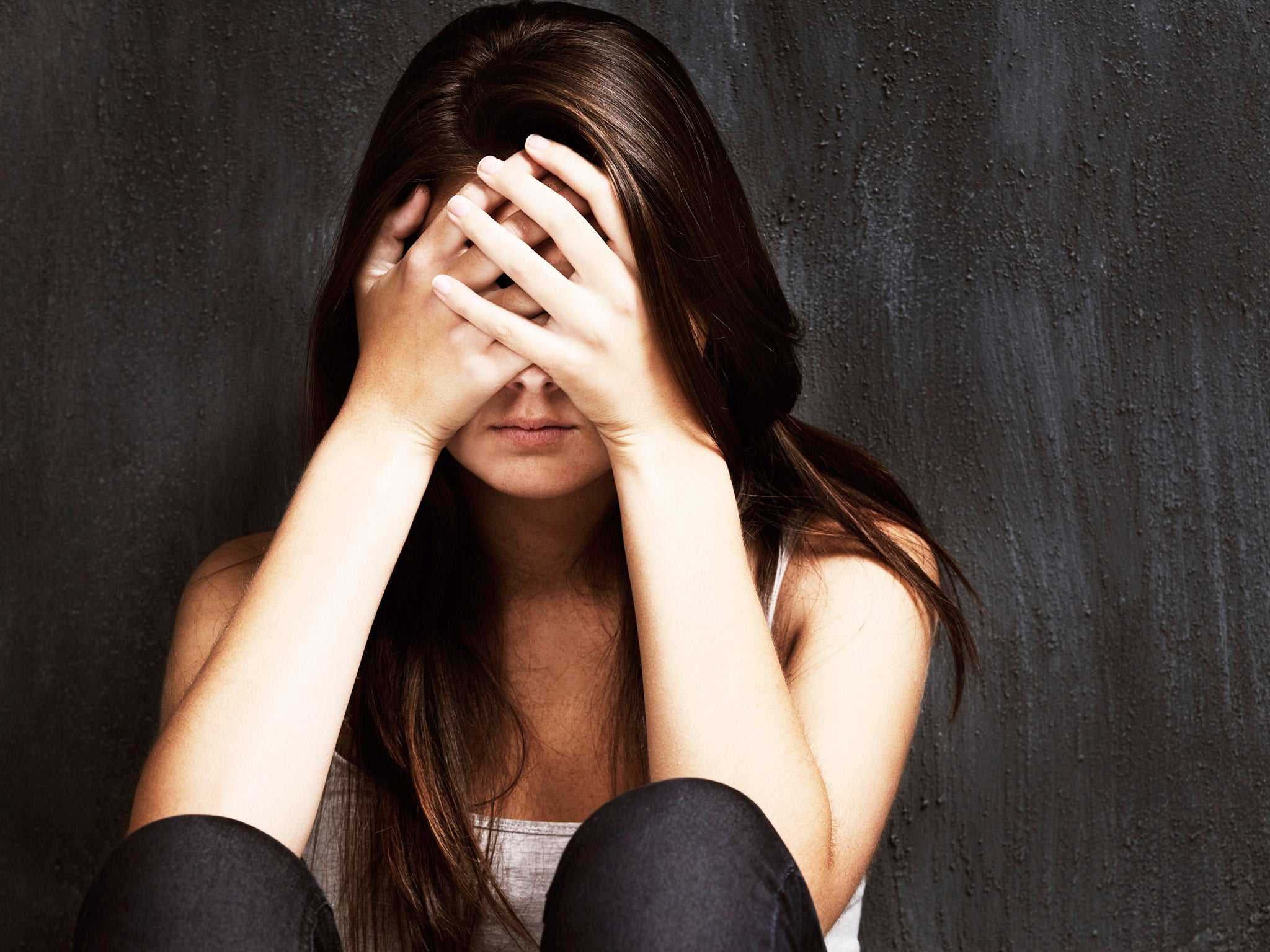If British girls' mental health is at crisis point, why are we still refusing to change our schools?
There are a number of things we could be doing in schools to tackle a growing mental health epidemic among teenagers. Unfortunately, nobody wants to do them


Britain’s girls are at crisis point. In terms of their mental wellbeing and self-esteem, this is no exaggeration – and their parents are ill-equipped to realise the signs. Research released today by Girlguiding UK has found that girls as young as seven are experiencing mental health problems, and these issues only grow more common throughout secondary school and into early adulthood.
The findings show that for girls aged 11 to 21, self-harming is one of the biggest health concerns, followed by cyber-bullying and mental illness. Out of the 1,574 girls surveyed, nearly half (46 per cent) reported having mental health issues, while even more (62 per cent) said they knew someone who’d suffered from a mental health problem. These figures should be shocking, but they aren’t, because the pressures facing young women are more pronounced and numerous than ever.
It’s not enough to get a string of perfect GCSEs or A Levels nowadays, you see. You need the Instagram-worthy group of friends, the attentive and good-looking boyfriend, the lips of Kylie Jenner, the curves of Jennifer Lawrence, the doe eyes of Zoella, and the reputation of being sexy and desirable without being a ‘slut’.
If your life isn’t perfectly cultivated online and offline, then woe betide you in a group of your peers. My sixteen year old fears about my MySpace profile not being customized adequately seem positively antique next to current worries about cyber-bullying and the phenomenon of ask.fm, where participants can be deluged in some of the most vile and disturbing anonymous abuse available online. Some of the abuse that teenage girls pile on each other in the virtual world make 4chan look like a unicorn’s rainbow playground.
And it doesn’t stop with aggressive ‘thinspiration’, either. There’s a strong sexual dimension to the online concerns of young women, particularly as many girls are pressured into sending explicit pictures and videos to boyfriends or would-be boyfriends, only to have them widely disseminated online or shared round school. Some girls are forced to disrupt their education and move schools after being publically shamed in this way. According to the same Girlguiding report, in the last week, 75 per cent of girls agree that anxiety about sexual harassment has a negative impact on their lives. It’s a perfect storm of aggression, isolation, harassment and misery.
So where do young girls turn when mired in this high-pressure environment? It seems that our medical services are ill-equipped to cope with the culture we’ve created. Deep cuts (8 per cent in real terms) have affected existing mental health services, despite a 20 per cent increase in demand. Meanwhile, only 13 per cent of NHS funding is allocated to mental health treatment, even though mental illness accounts for more than a fifth of the disease burden. Lack of information in schools, social stigma, long waiting lists, and GPs ill-equipped to spot early warning signs of mental illness are all barriers to young people getting the treatment they need.
We can help our young women. We can do so by opposing further butchering of mental health services by the current government. We can teach girls to mistrust images of perfection, in advertising, pop culture, and on social media, and let them know that from an academic perspective, their best is always good enough. Simple efforts like media lessons that point out how to spot Photoshopping, or expanding extracurricular activities alongside academia, can help to deconstruct poisonous beliefs about inadequacy.
Alongside this, we can campaign for comprehensive sex and relationship education that focuses on consent, respect, and healthy relationships between young men and women to tackle the culture of harassment and sexual abuse that often starts in schools. And above all, we can do what’s truly radical: listen to girls, and believe them when they tell us about their experiences.

Join our commenting forum
Join thought-provoking conversations, follow other Independent readers and see their replies